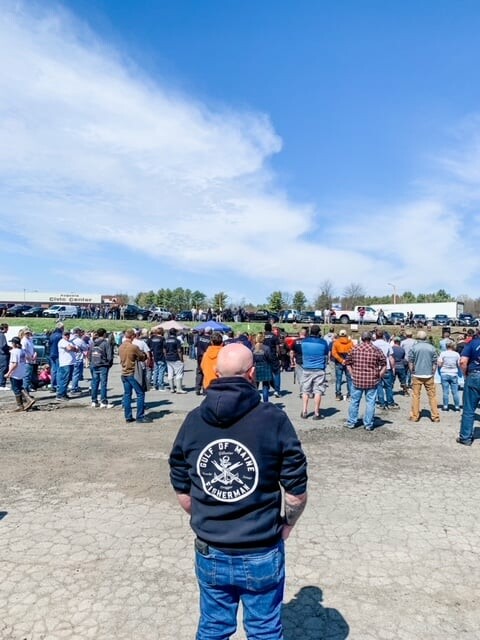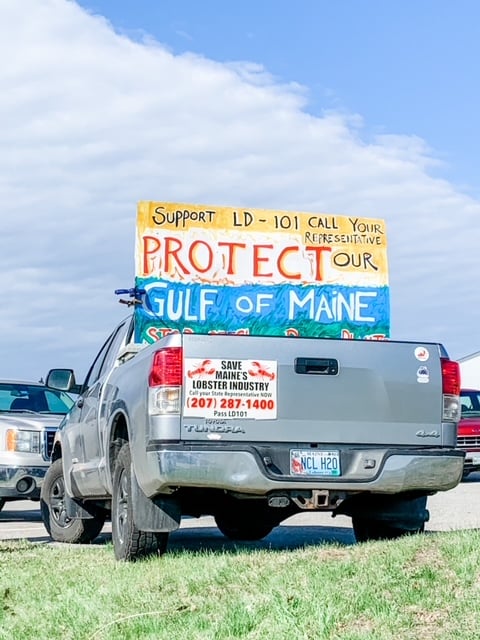A gathering to oppose offshore wind development in the Gulf of Maine brought nearly 500 Mainers to the state capital on Wednesday, April 28. The rally sought to centralize the concerns of Maine’s fishing communities and fishermen who believe they have been overlooked in the siting and development phases for offshore energy buildout on the Gulf of Maine.
At the gathering — organized by the Maine Lobstering Union (Local 207), with support from Maine Coast Fishermen’s Association and in partnership with the Downeast Lobstermen’s Association and Maine Lobstermen’s Association — fishermen voiced concerns regarding the unknown impacts to ocean ecosystems, marine habitats, and the fisheries that have supported coastal communities for centuries.
“Maine lobstermen are stewards of the sea and partake in the most sustainable fishery in the world. Protecting it and its environment for centuries has been our goal,” said Matthew Gilley, a lobsterman from Harpswell, and one of the speakers at the event. “The state of Maine believes it’s a good idea to replace this way of life with unproven foreign-backed power plants in the Gulf of Maine, and we disagree.”
Before the rally, Maine Gov. Janet Mills announced her intention to submit a bill to prohibit the siting of offshore wind within three miles of Maine’s coast for the next 10 years. Maine family fishing businesses and fishing industry organizations have pledged to push the state to provide a clear plan for offshore wind development, as well as a detailed plan outlining the potential of alternate green energy investment opportunities that will protect the Gulf of Maine, our natural resources, and Maine’s working citizens.
“Fishermen are on the frontlines of climate change,” said Monique Coombs, director of Community Programs for the Maine Coast Fishermen’s Association. “They are experiencing the impacts of warming waters on their businesses already and we should be taking care to ensure that the solutions to solving global warming do not come at the cost of Maine’s rural communities and local food system. Today’s rally was a plea from Maine’s fishing communities to the governor’s office to investigate the potential for offshore wind to solve the climate change crisis through a thoughtful, inclusive process, with a focus on solutions that are appropriate for Maine and its residents and not just push a technology UMaine is invested in.”

The state of Maine received a $2 million federal grant last October to conduct a comprehensive planning process, called Maine’s Offshore Wind Roadmap, intended to “focus on planning and data-gathering to support siting decisions, with the goal of minimizing potential effects on the environment and fisheries.” Many in the fishing community are calling for this roadmap to be completed before any floating or stationary wind energy industrial sites are selected in the Gulf of Maine.
“Rome wasn’t built in a day, and we will not stop offshore wind with one rally,” said Virginia Olsen, a member of the Maine Lobstering Union, “Augusta knew fishermen were here today, they know we are paying attention, and they know we are asking to be heard. We voiced our legitimate concerns about the impacts that this development will have on the Gulf of Maine which has been our home and supported our fishing families for generations. We are not going to be pushed out of the way.”







